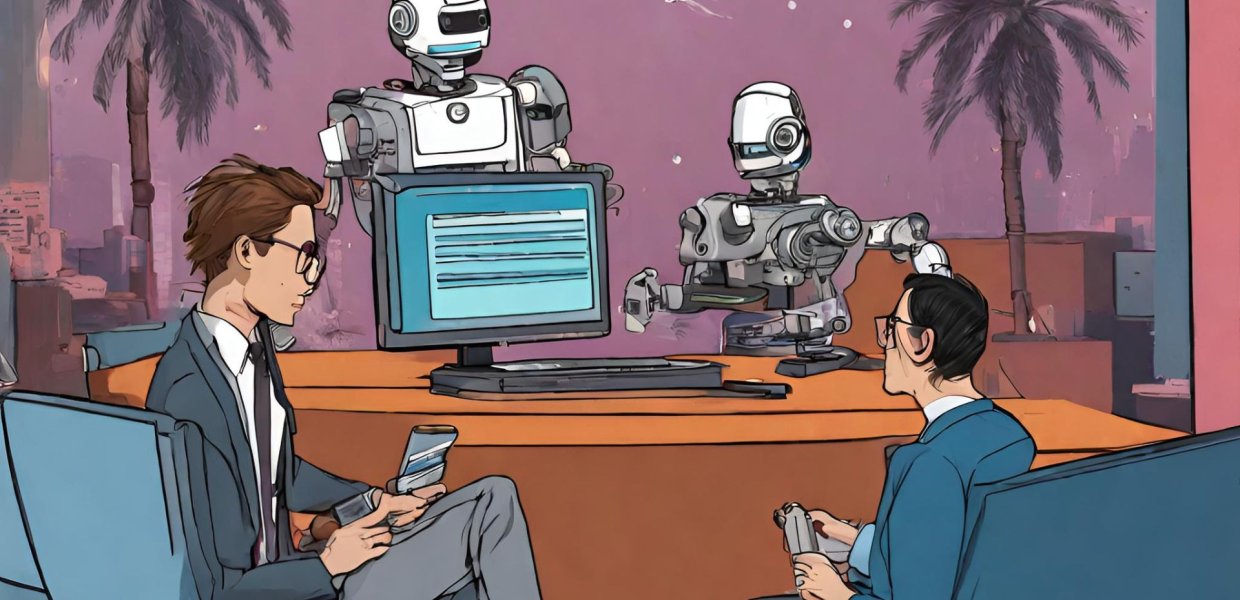The entertainment industry is one of the most forward-looking. It's constantly seeking new ways to capture an audience and tell a story. With the creation of streaming media and artificial intelligence (AI), how Hollywood is telling its stories has become erratic. The Writers Guild of America (WGA) called this moment an “existential crisis”.
The WGA, the labor union to which most working writers in Hollywood belong, went on strike over a labor dispute with the Alliance of Motion Picture and Television Producers (AMPTP) on May 2, 2023. The Writers vs. Producers dispute centered around residuals from streaming media and the growing utilization of AI within the entertainment industry. Writers began picketing in front of major studio headquarters including Netflix, Warner Bros., and Universal Studios.
The 2022 release of ChatGPT, a natural language processing tool driven by AI technology, was one of the leading forces that led to the strike. The World Economic Forum predicted that AI will disrupt a quarter of all jobs over the next five years. The problem lies in the fact that AI could potentially produce a first draft of simple prompts. Consequently, when writers were hired, they could be hired at a lower pay rate because the first concepts would be completed for them.
Other issues revolve around reducing the work or pay for writers: streaming media’s shorter TV seasons and lower renewal rates of those shows leading to fewer steady jobs; smaller writers’ rooms leading to fewer hires and lower pay; and shrinking residuals for past shows that were streamed or syndicated. According to a recent WGA report, the median weekly writer-producer pay declined by 23% over the last decade when considering inflation.
Award-winning television showrunner, executive producer, and writer Anthony Sparks, PhD, expressed his concern about the matter.
“The embrace of AI in the film and television industries is the biggest threat to the viability of the profession of film writing that I've seen in my career and lifetime. Not only is AI-produced film and television destructive to a unionized workforce by aiming to reduce our workforce drastically, but it is also theft. Plain and simple. It is theft. AI would consume the hard work of current and previous generations of writers, then splice it and dice it into a regurgitated stew of nonsense that presumes that human creativity has reached its limits.”
“AI is not only dangerous because of its job-killing capability in the creative industry; it is dangerous because it forever freezes our popular culture and limits it to the current moment in time. This embrace of AI in the entertainment industry must be stopped.”
Writers and professionals feared that the emergence of AI-written content would replace their professions as technology advanced. The writers had three demands of the producers going into the strike:
- “AI can't write or rewrite literary material”
- “AI can't be used as source material”
- Scripts written under the WGA contract "can't be used to train AI.”
This means that no producers (AMPTP members) could release media where any part was created using AI programming, preventing AI-generated content from being used as source material. Initially, these demands were rejected as the AMPTP was unwilling to accept any restrictions on the future use of AI. However, the AMPTP negotiated annual meetings with the writers to discuss future advancements.
Fortunately, the WGA and the AMPTP reached a preliminary deal on a tentative contract on September 27, ending the strike pending a final vote by the 11,500 WGA members. The deal, effective January 1, 2024, will last until May 2026 and includes the following:
- AI cannot write or rewrite literary material.
- AI-generated material is not to be considered source material.
- Also, streaming content viewed by 20% or more of the service’s domestic subscribers in the first 90 days of release will earn bonuses for the writers. (This would be equivalent to the viewing of a popular network series.).
Though at the time of this publishing, we don’t know the outcome of the SAG-AFTRA strike over similar issues, the future of entertainment seems to be promising as writers and producers have moved toward finding common, creative ground.
Channing Sparks is a second-year graduate student at the University of Southern California, studying public relations and advertising at the Annenberg School for Communication and Journalism under the Annenberg Deans Scholarship. Here, she holds a position as a graduate research associate for the Center for Public Relations. She is a dedicated, hardworking, passionate, and open-minded young professional aspiring to seek career opportunities and experiences in the entertainment, media, and dance industries. In Spring 2023, Sparks worked as a public relations intern with AM PR Group, a boutique public relations agency.
